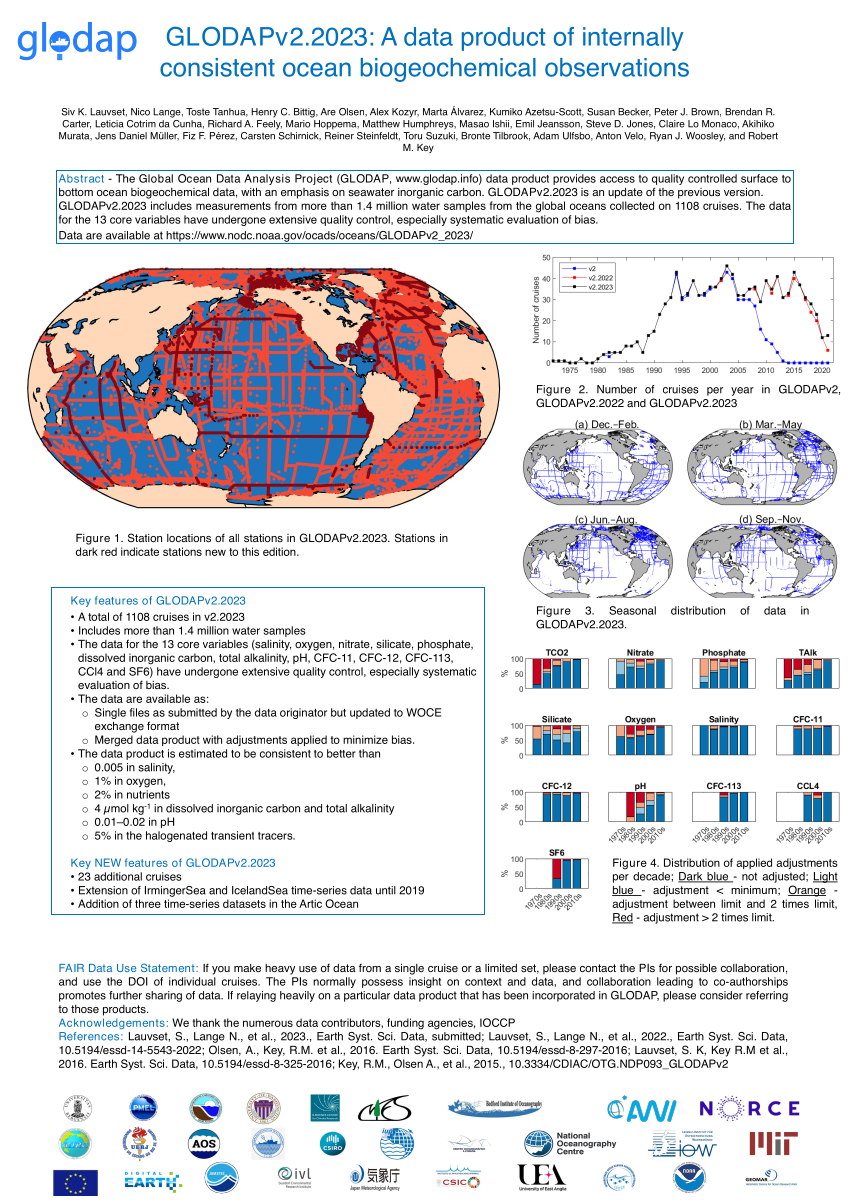The Global Ocean Data Analysis Project (GLODAP) is a synthesis activity for ocean surface to bottom biogeochemical data collected through chemical analysis of water samples. Data for 13 core variables (salinity, oxygen, phosphate, nitrate, silicate, dissolved inorganic carbon, total alkalinity, pH, CFC-11, CFC-12, CFC-113, CCl4 and SF6) are subjected to primary and secondary quality control to identify outliers and correct for measurement biases.
GLODAP is publicly available, discoverable, and citable. GLODAP enables quantification of the ocean carbon sink, ocean acidification and evaluation of ocean biogeochemical models.
GLODAP was first published in 2004. The second version, GLODAPv2, was released in 2016. This forms the basis for regular updates, containing new data sets as well as updates of older ones. The first such regular update was GLODAPv2.2019.
GLODAPv2.2023 adds data from 23 cruises to the previous release and extends coverage in time until 2021. GLODAPv2.2023 contains data from more than 1.4 million water samples collected on 1108 cruises. An accompanying manuscript has been submitted for consideration for publication in Earth System Science Data (details to come).

